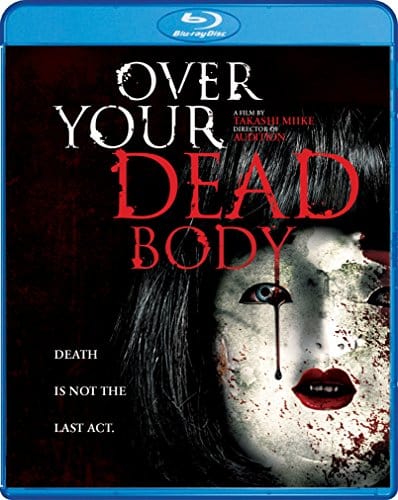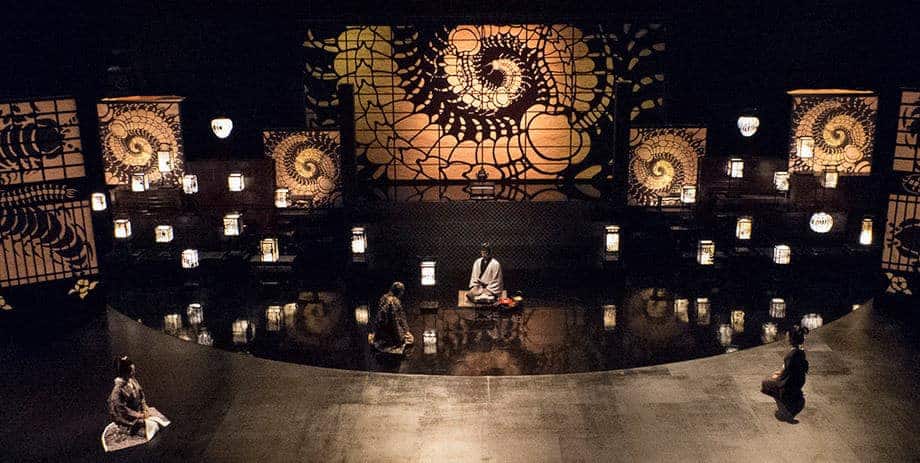Probably the most “serious” film Miike has shot lately among the raving madness of productions like “The Mole Song” and “Yakuza Apocalypse”, “Over Your Dead Body” stands apart for two other reasons. The protagonist is the famous kabuki actor Ichikawa Ebizo XI, and the script is based on the quintessential Japanese horror tale of “The Ghost Story of Yotsuya” (Yotsuya Kaidan), although Miike's style had a definite say in the final outcome.
Buy This Title

The film follows a theatre troupe as they rehearse a play where a samurai seduces a woman and then murders her disapproving father, in order to inherit his estate. However, when he is offered the granddaughter of another wealthy man, his true colors are disclosed to his wife, who eventually returns as a ghost to hunt him. In actual life within the movie, the female star of the film named Miyuki Goto has pulled some strings to give the main protagonist role to her boyfriend, Kosuke Hasegawa. However, as other actresses Rio Asahina and Jun Suzuki lust after Kosuke, their lives begin to mirror those of the play, as the lines between fiction and reality gradually disappear.

Takashi Miike directs a horror film that moves on two axes. The first is the actual life of the actors, including the intrigues among them in the rehearsals, and the second is the actual play, with the borders between the two becoming blurry after a while. The horror element is subtle in the beginning, but as the film progresses, it takes its usual place in Miike's pictures, with a number of grotesque scenes (including one which is very difficult to watch, regarding a woman performing an abortion on her own) and bloodbaths.
Horror though is usually achieved in films through sound, and “Over Your Dead Body” is a film that excels in that aspect, with the various sound effects making more horrific even the most violent scenes. Nobuyasu Kita.s cinematography is quite polished and dominated by dark and grey shades, that at moments reminded me of Tetsuya Nakashima's “Confessions,” in a rare tactic among the latest Miike's productions, which are usually filled with color. Kenji Yamashita's editing is also artful, maintaining the balance between the two “worlds” in a fashion that can be easily understood by the spectator, despite the constant mixture of fantasy and reality.
Miike's entertaining “eccentricity” could not be missing, and is chiefly represented by a limp actress and the constant crying of a baby, both of which intensify the eerie atmosphere that permeates the movie. Furthermore, the casting of a kabuki actor in the role of a theatre actor is a notion that could only occur in Miike's mind. Lastly, and in an unusual tactic for the contemporary Japanese cinema, there are many sex scenes present, with the first one even appearing in the very beginning.
The movie draws heavily from Ichikawa Ebizo XI, who is very imposing with his distinct voice and overall composure as Kosuke Hasegawa, to the point that he overshadows the rest of the cast. The female actresses are all gorgeous, wtih Ko Shibasaki as Miyuki Goto having the best performance, in the most demanding female role of the film.
“Over Your Dead Body” is one of the greatest works of the prolific director, who, at last, managed to stay away from the nonsensical manga adaptations, in a way that reminds of the atmosphere he created in films like “Audition.”















